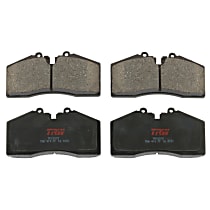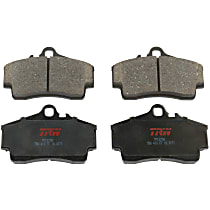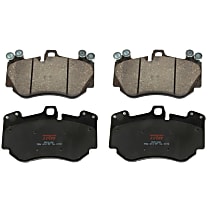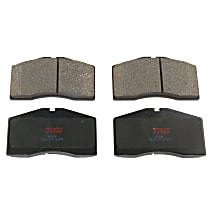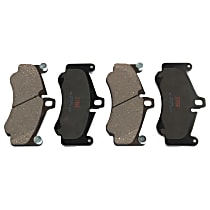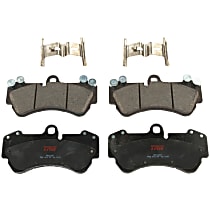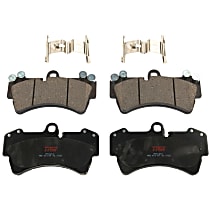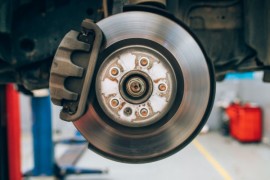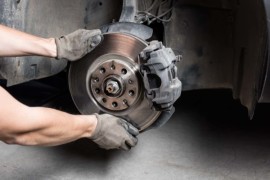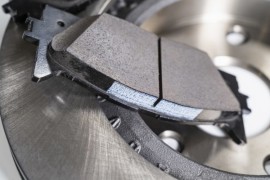{
"lazyNodes": false,
"abFitnotesFlag": false,
"abCrawlReviews": false,
"productOptionsCookie": false,
"orderDelayFlag": false,
"skipSessionCookie": false,
"covidMessage": false,
"fullTitleCookie": false,
"nrLoggerCookie": false,
"checkoutReviewCookie": false,
"productOptionSeqCookie": false,
"maintenanceFlag": false,
"bufferETACookie": false,
"multiShippingDiscountFlag": false,
"newFitmentFlag": false,
"surveyOptInFlag": false,
"crossSellFlag": false,
"skuMappingFlag": false,
"paySplitCookie": false,
"callDisableFlag": false,
"zipPaymentFlag": "u",
"hassleFreeReturn": false,
"lifetimeReplacement": false,
"cpn_off": false
}Porsche Brake Pad Sets
Shop Catalog
![]() WARNING: This product can expose you to chemical which is known to the State of California to cause cancer and birth defects or other reproductive harm. For more information go to www.P65Warnings.ca.gov.
WARNING: This product can expose you to chemical which is known to the State of California to cause cancer and birth defects or other reproductive harm. For more information go to www.P65Warnings.ca.gov.
![]() WARNING: This product can expose you to chemical which is known to the State of California to cause cancer and birth defects or other reproductive harm. For more information go to www.P65Warnings.ca.gov.
WARNING: This product can expose you to chemical which is known to the State of California to cause cancer and birth defects or other reproductive harm. For more information go to www.P65Warnings.ca.gov.
![]() WARNING: This product can expose you to chemical which is known to the State of California to cause cancer and birth defects or other reproductive harm. For more information go to www.P65Warnings.ca.gov.
WARNING: This product can expose you to chemical which is known to the State of California to cause cancer and birth defects or other reproductive harm. For more information go to www.P65Warnings.ca.gov.
![]() WARNING: This product can expose you to chemical which is known to the State of California to cause cancer and birth defects or other reproductive harm. For more information go to www.P65Warnings.ca.gov.
WARNING: This product can expose you to chemical which is known to the State of California to cause cancer and birth defects or other reproductive harm. For more information go to www.P65Warnings.ca.gov.
![]() WARNING: This product can expose you to chemical which is known to the State of California to cause cancer and birth defects or other reproductive harm. For more information go to www.P65Warnings.ca.gov.
WARNING: This product can expose you to chemical which is known to the State of California to cause cancer and birth defects or other reproductive harm. For more information go to www.P65Warnings.ca.gov.
![]() WARNING: This product can expose you to chemical which is known to the State of California to cause cancer and birth defects or other reproductive harm. For more information go to www.P65Warnings.ca.gov.
WARNING: This product can expose you to chemical which is known to the State of California to cause cancer and birth defects or other reproductive harm. For more information go to www.P65Warnings.ca.gov.
![]() WARNING: This product can expose you to chemical which is known to the State of California to cause cancer and birth defects or other reproductive harm. For more information go to www.P65Warnings.ca.gov.
WARNING: This product can expose you to chemical which is known to the State of California to cause cancer and birth defects or other reproductive harm. For more information go to www.P65Warnings.ca.gov.
![]() WARNING: This product can expose you to chemical which is known to the State of California to cause cancer and birth defects or other reproductive harm. For more information go to www.P65Warnings.ca.gov.
WARNING: This product can expose you to chemical which is known to the State of California to cause cancer and birth defects or other reproductive harm. For more information go to www.P65Warnings.ca.gov.
![]() WARNING: This product can expose you to chemical which is known to the State of California to cause cancer and birth defects or other reproductive harm. For more information go to www.P65Warnings.ca.gov.
WARNING: This product can expose you to chemical which is known to the State of California to cause cancer and birth defects or other reproductive harm. For more information go to www.P65Warnings.ca.gov.
![]() WARNING: This product can expose you to chemical which is known to the State of California to cause cancer and birth defects or other reproductive harm. For more information go to www.P65Warnings.ca.gov.
WARNING: This product can expose you to chemical which is known to the State of California to cause cancer and birth defects or other reproductive harm. For more information go to www.P65Warnings.ca.gov.
![]() WARNING: This product can expose you to chemical which is known to the State of California to cause cancer and birth defects or other reproductive harm. For more information go to www.P65Warnings.ca.gov.
WARNING: This product can expose you to chemical which is known to the State of California to cause cancer and birth defects or other reproductive harm. For more information go to www.P65Warnings.ca.gov.
![]() WARNING: This product can expose you to chemical which is known to the State of California to cause cancer and birth defects or other reproductive harm. For more information go to www.P65Warnings.ca.gov.
WARNING: This product can expose you to chemical which is known to the State of California to cause cancer and birth defects or other reproductive harm. For more information go to www.P65Warnings.ca.gov.
![]() WARNING: This product can expose you to chemical which is known to the State of California to cause cancer and birth defects or other reproductive harm. For more information go to www.P65Warnings.ca.gov.
WARNING: This product can expose you to chemical which is known to the State of California to cause cancer and birth defects or other reproductive harm. For more information go to www.P65Warnings.ca.gov.
![]() WARNING: This product can expose you to chemical which is known to the State of California to cause cancer and birth defects or other reproductive harm. For more information go to www.P65Warnings.ca.gov.
WARNING: This product can expose you to chemical which is known to the State of California to cause cancer and birth defects or other reproductive harm. For more information go to www.P65Warnings.ca.gov.
![]() WARNING: This product can expose you to chemical which is known to the State of California to cause cancer and birth defects or other reproductive harm. For more information go to www.P65Warnings.ca.gov.
WARNING: This product can expose you to chemical which is known to the State of California to cause cancer and birth defects or other reproductive harm. For more information go to www.P65Warnings.ca.gov.
Popular Products
Shopping for Porsche Brake Pad Set
FAQs—Porsche Brake Pad Set
- Will bedding in the new brake pads and the rotors make a difference? The new Porsche brake pad set I ordered online just got in. It’s scheduled for installation tomorrow. A friend volunteered to help me bed in the new brake pads and the rotors this week. I’m not sure if this will really matter. What are the benefits?
- How do you bed in the brake pads and rotors? And how does it work? This is my first car, and I had to replace the old brake pads on the second-hand Porsche that I recently bought. I’m not sure exactly how the process works.
- I’m driving a light compact car. A week ago I checked the factory brake pads after the vehicle has reached about 70,000 miles, and they should already be replaced. Now, I’m not sure what type of brake pads to get for my car. Any good suggestion? What would be a great option for a light compact vehicle? I mostly just drive around the city.
- What would be a good type of brake pad set to buy for a sports car? I drive the car on highways and tracks, and I want to get something that can give me optimum braking power as I run the vehicle at its max speed.
- I’m looking for a set of brake pads for my SUV. I want one that’s practical and affordable since I’m not really an aggressive driver. I just want something that can provide decent braking power and can last for a while, considering the weight of my vehicle.
- How long before brake pads need to be changed or replaced? What’s the average lifespan?
- How can I tell if my brake pads already need to be checked or even replaced? What are the signs or cues that I should watch out for when driving?
By bedding in the brake pads and rotors, these brake components are able to work better together. They’re mated together properly and are prepared for heavy use. The break-in process will help the brakes tap their full potential to give the vehicle optimum braking performance. This will help not just eliminate brake noise and squeal but will also enhance the brake pedal fee. This is also done to prolong the life of the pads and rotors, minimize brake dust, and even treat brake judder.
As you bed in the brake pads, dirt and other impurities leave the surface of the pad. And in the process, some layer of pad residue is transferred on the surface of the rotor. It takes a cycle of heating and cooling when applying the brakes to complete the process and achieve the results. The method varies depending on the manufacturer of the brakes. But here’s one way of doing it—speed up to 35 mph and use moderate brake pressure for slowing down the vehicle to 5 to 10 mph. This should be repeated thrice or about four times until the brake pads are all warmed up. Accelerate to about 45 mph for further warm-up and slow down to 10 mph. This should again be repeated several times. If possible, avoid bringing the car to a complete stop while bedding in the pads. After this, you have to let the brakes cool for about an hour.
Light compact vehicles don’t need too much braking power to stop. So for this type of vehicle, a more practical choice would be organic brake pads. These pads are lightweight and quite inexpensive compared to others. They don’t make too much noise and can provide decent braking power, although a common problem with them is brake dust. If you mostly drive your compact vehicle around town and don’t actually engage in hard braking or aggressive driving, this is among your best choices. If you’re bothered by the idea of the pads producing a lot of dust, another good option would be ceramic pads, although they’re more expensive.
For sports cars or high-speed vehicles, the best option would be ceramic brake pads. These pads are a common choice for high-performance vehicles because they can provide the braking power needed to stop a vehicle with bigger engine or one that can generate copious amounts of horsepower. They can do the job without actually wearing out the rotor fast or damaging the brake system. While they’re strong enough to slow down or bring to a halt a speeding vehicle, they’re also lightweight, which is a plus since they won’t add too many pounds on the vehicle and won’t limit the speed. Although they come at a higher price, these can very well put up with aggressive driving.
A good choice for average drivers driving a truck, SUV, or passenger cars would be semi-metallic brake pads. They’re affordable and quite practical since they offer good braking power for heavier vehicles. You just have to watch out for rotor damage. But if you don’t engage in hard braking and drive carefully on the road, this won’t be much of a problem.
Some mechanics and manufactures would place the average lifespan of brake pads to anywhere between 30,000 to 70,000 miles, although in some vehicles, the pads have lasted for around or more than 100,000 miles. The wide spread or range is because the condition of the brake pads depends on driving style, the vehicle where they’re installed, and the type of pads used. Those who drive in a stop-and-go traffic may have to change the pads more often or in a shorter time, for instance.
Unusual noises such as high-pitch squeal, screeching, clicking, and grinding are often signs of brake pad wear. If you hear any of these when braking, then it’s time for you to check if the brake pads are already thin or worn out. If the brake pedal vibrates or you experience grabbing when trying to hit the brakes, it may indicate brake pad wear. Check if the vehicle seems to pull to one side when braking and without turning the steering wheel. This often means that the brakes are compromised or the brake pads are no longer in their best condition to provide a firm grip.
